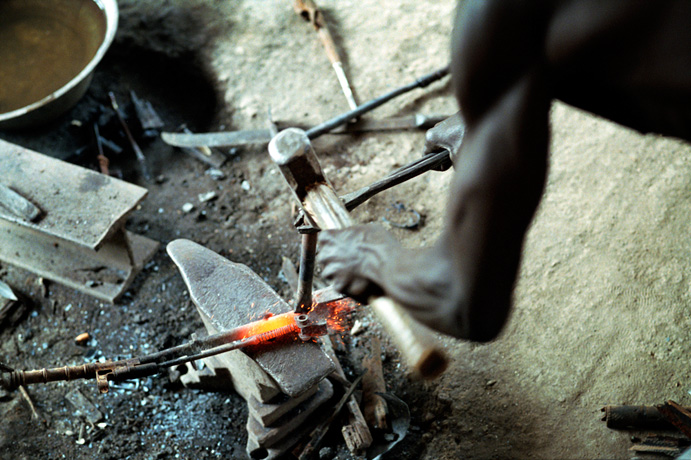There are no products in your shopping cart.
| 0 Items | £0.00 |


SEVERAL Nigerian blacksmiths have now acquired the necessary expertise to manufacture AK47 assault rifles and other light arms thus providing a steady flow of weaponry to bandits and criminals according to a recent Defence Intelligence Agency (DIA) report.
Over the last decade or so, Nigeria has been wracked by insecurity as terrorists, bandits, kidnappers, rapists and armed robbers have had a field day. This insecurity has been fuelled by the proliferation of illegal firearms said to number up to 6m in Nigeria today, with many of them coming from nations like Libya and Somalia.
According to the DIA, however, several local blacksmiths have now mastered the art of manufacturing these assault weapons. Representing the DIA at a public hearing organised by the House Committee on National Security and Intelligence on four security-related bills in Abuja, Air Commodore FG Okoyi, said the development posed serious security risks for Nigeria.
Commodore Okoyi said: “The cautionary attachment to blacksmith skills, as well as the traditional weapons manufactured for hunting, ceremonial and ornamental purposes, has remained the symbol of power and prestige in some traditional communities in Nigeria. However, in recent times, blacksmiths have advanced their skills and now possess the capability to manufacture assorted and sophisticated rifles such as AK-47, revolvers, pistols, improvise explosive devices, among others.
“This development has created the need to identity, monitor and regulate their activities, thus, the need for these blacksmiths to be integrated into the Defence Industries Corporation of Nigeria to enable all defence industry complex exploit their talents. Meanwhile, the bill should be mindful that Section 28 of the Fire Arms Act of 1957, which prohibits the unlawful manufacture of firearms, has not been repealed, hence the need to consider possible benefits to be derived from collaborations between Nigeria and local arms manufacturers by further reviewing extant laws that would support private sector participation in local arms manufacturing is very necessary.”
In addition, Commodore Okoyi also called for the control of the acquisition of scrap metals, noting that the elements used locally to manufacture improvised explosive devices (IED) consist of various components such as initiators, switches, main charges, power surges and containers. He added that an IED may be further enclosed with additional enhancement such as nails, glasses or metal fragments designed to increase the amount of shrapnel propelled by the explosion.
Commodore Okoyi added: “These items are most often collected by scavengers who move around from one location to another, in residential and business premises, sourcing and collecting discarded items such as scrap metals, plastic, beverage cans, metals, among others, from refuse dumps and bins. Their activities are mostly not scrutinised by any authority.
“The agency considers the bill gives more power to law enforcement agencies to monitor the activity of scavengers, movement and the use of scrap metals and other materials they may collect and sell to be used for the manufacturing of IEDs. Also, fertilisers are being sold to unscrupulous persons who use the chemical substance locally as explosive materials to manufacture IEDs capable of causing massive loss of lives.”
He pointed out that the frequent demand for fertilisers has rapidly led to an increase in the establishment of illegal fertiliser companies especially in the northern part of the country. It is believed that terrorist groups like Boko Haram, have exploited this capability to the maximum, using it to manufacture explosives.